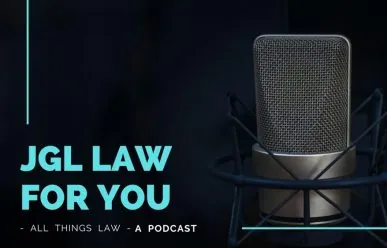Mental Health Privilege & Maryland Divorce Blog Law Series – Part 5
This blog series discusses mental health privilege (the confidentiality a client has/clients have with their mental health provider) in contested family litigation (such as divorce and custody).
To recap:
A “privilege” is the legal right to protect a communication from disclosure & to keep information confidential. Privileged information cannot be used in contested litigation unless the privilege is waived.
Privilege attaches when certain types of professionals provide mental health services. Not everyone who is a “counselor” or “therapist” qualifies as a privileged provider. The scope of privilege depends upon the type of provider, and privilege does not protect everything known by or in the records of a mental health provider (except social workers).
This blog focuses on the “who”: Who holds the privilege and can waive it?
Individual Therapy
A patient, the patient’s authorized representative, or the patient’s guardian if the patient is incompetent, is the one who holds the privilege. So the privilege-holder decides whether to refuse to disclose their own privileged information and whether a witness shall be prevented from disclosing privileged information. Potential witnesses could be the therapist/mental health provider, as well as the patient’s spouse, co-parent, or family.
In Maryland, a minor child is considered incompetent to decide privilege waiver. So, this falls to a guardian. However, in a child custody case, their parents, who are a child’s natural guardians, also lack capacity because a parent is considered to have a conflict of interest (Nagle v. Hooks, 296 Md. 123 (1983)). An attorney must be appointed to make this decision on their child client’s behalf. That attorney is called a Child Privilege Attorney (Rule 9-205.1 and Maryland Guidelines for Practice of Court-Appointed Attorneys Representing Children in Cases Involving Child Custody or Child Access).
Nagle v. Hooks does not apply in every legal situation where parents face a privilege waiver decision for their child. McCormack v. Board of Education, 158 Md.App. 292 (2004) is a must read about when a conflict of interest arises disqualifying parents from deciding privilege waiver on behalf of their child.
Group Therapy
Group therapy is not privileged (Reynolds v. State, 98 Md.App. 348 (1993)). So with nothing to waive, there’s no privilege holder. (Records may be confidential, which is outside the scope of this blog. Health General §4-301, et seq.)
Family & Couples Therapy
Group therapy should be distinguished from family therapy (though I’ve yet to find Maryland law that does so explicitly) and couples therapy. Group therapy is among strangers. So, there’s not the same expectation of privacy as in individual, family, or couples’ therapy.
Family and couples therapy are among family members/people in relationship. Family therapy is privileged (Board of Physicians v. Eist, 176 Md.App. 82 (2007)), and by extrapolation so is couple’s therapy.
While Board of Physicians v. Eist is not the most explicit of cases, a careful reading leads to the conclusion that all participants in family and/or couples therapy are required to waive privilege. Meaning if one does not, then no privilege waiver.
The lack of clarity in the law about family and couples therapy plus practicality (we can’t unknow something), point to the importance of not using the same therapist for individual and family or couples therapy.
The Takeaways
- The patient holds the privilege
- Minor children require a child privilege attorney (or other child counsel attorney with privilege waiver authority) to make a privilege waiver decision on their behalf in their parents’ contested custody case
- All patient participants must waive privilege in family or couples therapy
- Check if the mental health provider’s contract for services excludes him/her from participating in litigation (which may trump privilege waiver)
Next up: the “how”: How mental health privilege is waived.



